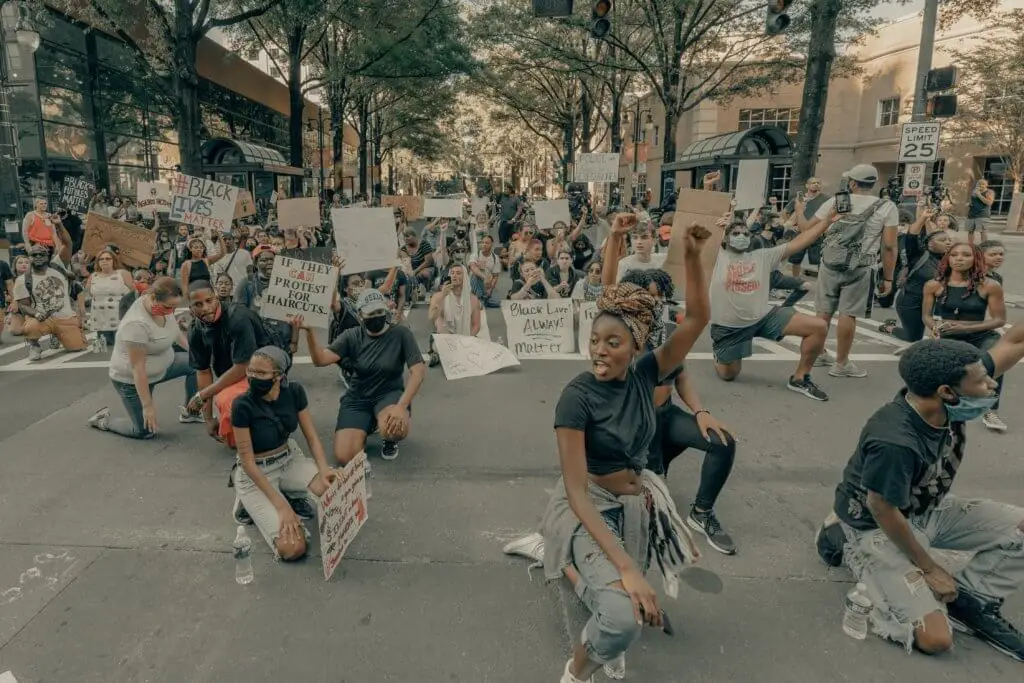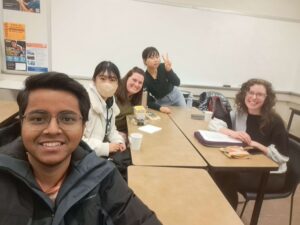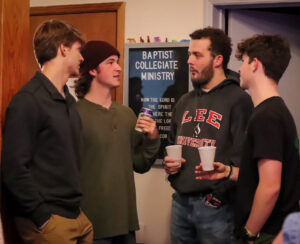I couldn’t be more proud of Teresa Royall, our Baptist Campus Minister at Georgia State University in downtown Atlanta. She ministers in the midst of of one of our most culturally-diverse BCMs in the middle of downtown Atlanta. She shared with our staff recently a series of experiences over the past weekend – experiences that impacted her and motivated her to minister more effectively.
This is written from a campus perspective but please don’t underestimate the potential for these words within your church congregation as well.
Teresa and her husband Bob are members of Crosspointe Church in Duluth. The sermon this past Sunday morning included a time of dialogue between Pastor James Merritt and an African-American church member. The discussion was very eye-opening for Teresa and led her to initiate text conversations with some of her African-American students. She learned even more through the replies from her students – and everyone she texted replied to her.
She began the text by expressing concern for them and simply asking, “How are you in the midst of all the protests and racial issues?” It’s important to realize that the replies below are not from random-on-the-street people. The replies below are from young Christians who are active in the BCM and who are seriously trying to process what is going on around them. Please resist the urge to interact with their comments. Focus on listening – well – to what they are saying. The texts are listed with minimal editing for clarity.
From a female student
“Thank You for reaching out Ms. Teresa, it means a lot me. Honestly I don’t know how to feel. I knew this country hated my people but these recent events are extremely heartbreaking. I was having a discussion with a family member of mine and we were talking about how we’re not sure if we even want to bring kids into this toxic world. I think one thing we can do is to come together as a ministry. We are lucky to have diversity within our BCM. I believe if we come together we can be a great influence and example in not only the entirety of the Board and BCMs everywhere, but the world as well. I could really use encouragement in prayer and knowing that I as well as my brothers and sisters have a safe space in you and the BCM. Knowing that we have y’all’s support would mean a lot. This is heavy topic, but it is extremely real and affects a lot of our own. It very numbing and can make you lose faith in society. It really hurts Ms. Teresa and I am trying to stay positive.”
From a male student
“Wow. Wow, wow, wow. One of my friends told me that I and one other person were the only ones to reach out to her thus far, and just a few minutes ago, I replied by saying that not a soul had texted me/reached out to me yet (besides the ones I initiated conversation with). Your second question answered itself. Thank you 𝘴𝘰 much. That just made my day. I am frustrated for a number of reasons. I’m upset that vandalism is occurring, but uncomparably more-so that some people I know were more willing to speak against the riots than the reason for which people are rioting in the first place. My heart breaks to know that protesters will inevitably bring the coronavirus back home with them. I am perplexed that the most fundamental aspects of safety have become a political battleground. I am weary, and both my heart and my brain ache for this country.”
From a male student
“I am not going to lie, I am extremely frustrated and angry. At this point, the only encouragement is support and allies. Mrs. Teresa you have so much power in your voice. When you speak, you are heard by so many people. People take into account your opinions and beliefs. Unfortunately, people of color don’t have the same power and reach. We can’t get through this or over this until we support one another. Whether that is vocally or through action. People are tired. People are tired of watching the news just see another innocent black person die. It’s traumatizing. All you can think as a black man is that, “That could have easily been me.” We can’t even defend ourselves because of the inappropriate consequences. I can’t even say it’s a broken system, when it was built like this on purpose. We have made improvements as a nation, but we have yet to see change. Change is an absolute. Changes don’t happen over night. But when we decide to unite and everyone supports one another and become allies by using our voice and our actions match, then we will finally see change. Obviously you see what is happening in this country as problem, because if you didn’t you wouldn’t reached out. Thank you for reaching out. Hope all is well.”
From a female student
“Hi, thank you for reaching out to me! i am okay, just overwhelmed. i think the biggest thing for me now is i’m now realizing how many people i consider “friends” really perceive me and black people. It really does hurt. But I’m glad I now know. I’ve been thinking a lot about my future, whenever I have kids.. I’m scared to bring them in this world but I’m reminded not everyone in this world is bad, people like you give me hope! I work a lot so I’ve had time to get off my phone and away from social media which is nice. It’s good to be informed but I think seeing everything happening is very overwhelming and just gives me a lot to think about.”
Some observations and encouragement for those of us who minister-in-the-midst – on campus and in our churches:
1. Be honest. As you read the texts, there was a temptation to think things like, “That’s not accurate” or “That’s presumptuous” or “That’s not fair” or “That’s so naïve or self-centered.” Please check your spirit.
2. Pray for God’s guidance and wisdom as you lead and communicate.
3. For Teresa, one of the big lessons from the discussion during church at Crosspointe Sunday morning was that there is a difference between being non-racist (passive) and being anti-racism (active). Be active!
4. Your silence is heard very loudly by African-American students and African-American church members.
5. Text or phone your African-American members/students. Reach out in the next hour. Reach out by the fastest method possible.
6. Reach out individually – this is not the place for a group text or email or social media comment.
7. Focus on listening to their replies. Read the reply once to allow your reactions to well up. Then read it again to listen with your heart. Listening well requires one to resist the urge to interact with every comment and focus on hearing the soul of the person. Focus on taking notes and you’ll have a better understanding.
8. When people KNOW you are really listening, be ready to hear about lots of incidents you’ve never heard about. They know what it’s like to be black-in-America. They have personal experiences. Their family members have personal experiences. Listen!
9. Focus on encouragement and understanding. Resist the urge to answer every thought.
10. ASK! (A suggestion from Jessie Holmes, our Campus Minister at Augusta University) After listening and understanding, ask how to help. Maybe even ask students/members what are some ways we can make a difference in our BCM/church communities. Many won’t know how to answer that question, but asking it will make them feel like they have a voice and are supported.
11. Encourage some of your mature students/members to join you in the effort. These conversations need to permeate your ministry.
12. Prepare to continue the conversation this fall on campus and at church. Ministering in the midst of COVID-19 is not your only challenge moving forward. Make sure your voice and actions match up. Make sure the model of Jesus is at the heart of both. Be pondering and praying now concerning how this will be addressed in your priorities/programs/messages this fall.
13. People are paying attention to your leadership in the midst of this crisis.
Go ye therefore!







 by
by